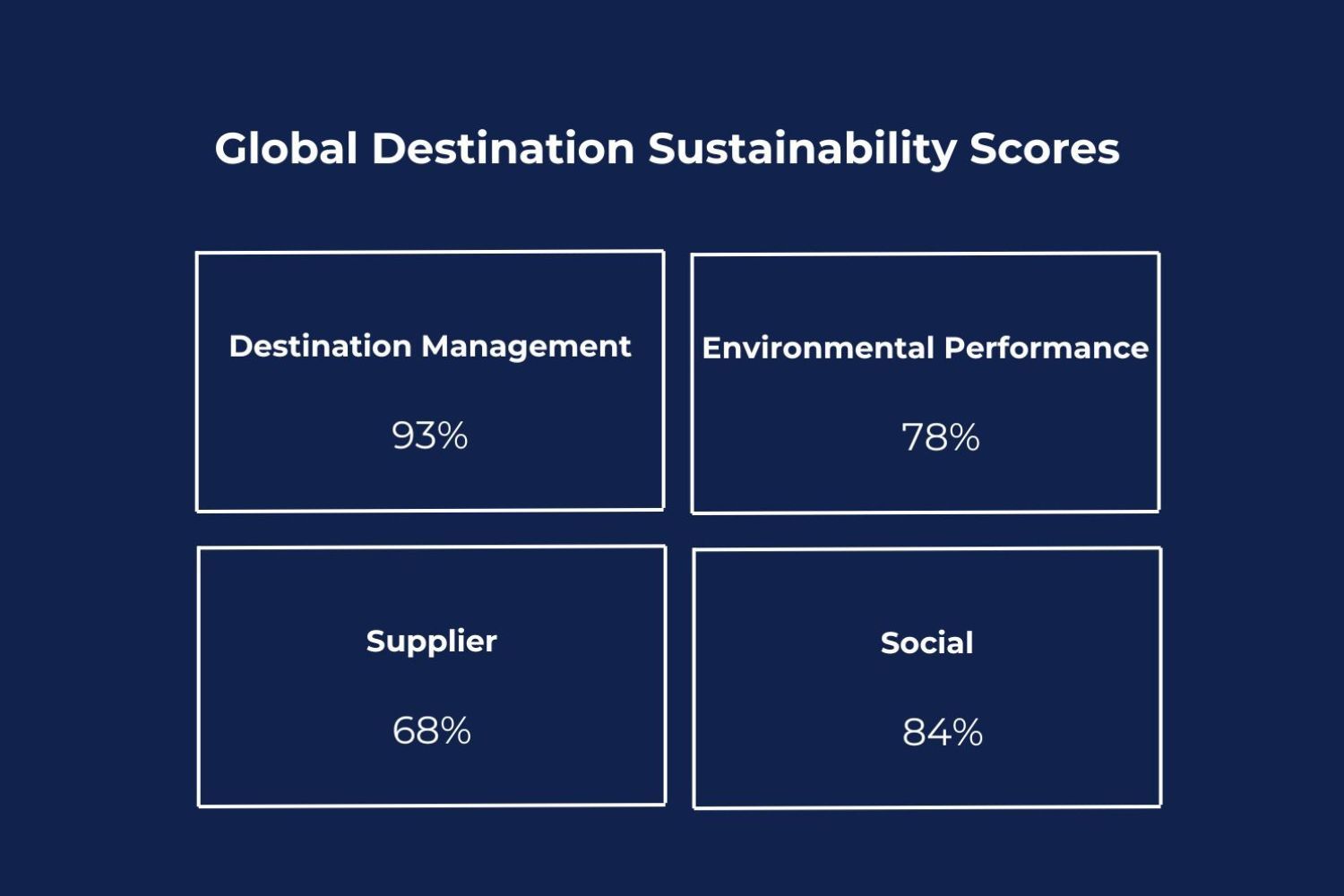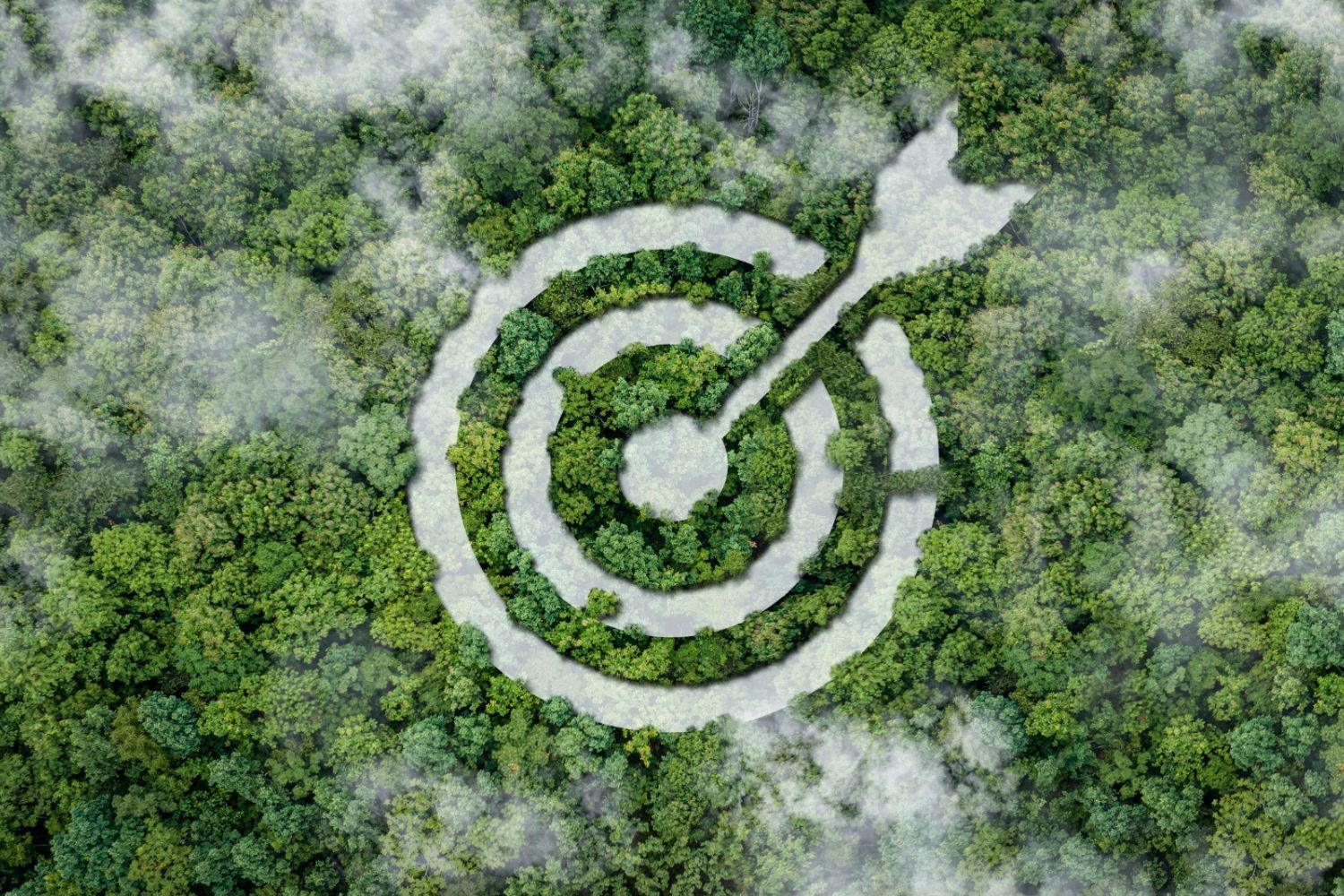Leadership Insights
A Sustainable Singapore: Harnessing Climate Action for a Resilient Future

The Imperative of Sustainability in a Rapidly Evolving World
The pressing need for sustainability in today's world cannot be emphasised enough. Climate change is profoundly transforming industries, redefining risk landscapes, and unlocking new avenues for growth. As stakeholders increasingly expect organisations to prioritise environmental stewardship, businesses and governments must rise to the challenge of meeting heightened standards of accountability and transparency.
Sustainability Leadership: A Beacon for Action
Singapore's proactive approach to addressing sustainability challenges sets it apart from other nations, and its commitment to environmental stewardship is evident in its impressive sustainability rankings. In the 2023 Global Destination Sustainability Index (Asia Pacific Region), Singapore made a remarkable 18-spot leap to secure the 17th position, demonstrating its unwavering dedication to sustainability through strategic green initiatives and forward-thinking policies.
This achievement is just the beginning. Singapore continues to drive sustainability and environmental leadership through various initiatives, positioning itself as a regional pioneer in sustainable economic growth, green innovation, and environmental responsibility. By harnessing its unique position, the city-state is evolving into a hub for green finance and technology, fostering collaboration and innovation in areas such as renewable energy, energy efficiency, and sustainable urban planning.
The government's proactive strategy includes investing in research and development, offering incentives for businesses to adopt sustainable practices, and engaging the public through education and community programs. Furthermore, Singapore is actively involved in global climate discussions and partnerships, showcasing its commitment to international cooperation and collective action on sustainability.

The Singapore Green Plan 2030 outlines an ambitious roadmap for sustainability, with targets including planting 1 million additional trees, quadrupling solar energy deployment by 2025, reducing waste sent to landfills by 30% by 2030, and committing to cleaner-energy vehicles by 2030. This comprehensive plan represents a whole-of-nation effort, engaging multiple ministries and aiming to permeate all aspects of Singaporean life.
Singapore's sustainability endeavours extend far beyond this plan. Numerous initiatives aim to cement its leadership in sustainability, drive economic growth through green innovation, and set a high standard for environmental responsibility in the region.
As a hub for green finance and technology, Singapore is leveraging its unique position to foster innovation and collaboration in areas such as renewable energy, energy efficiency, and sustainable urban planning. The government's proactive strategy includes investments in research and development, incentives for businesses to adopt sustainable practices, and public engagement through education and community programs.
Furthermore, Singapore's commitment to sustainability is reinforced by its active participation in international climate discussions and partnerships, demonstrating its dedication to collective action and global environmental stewardship.
Singapore's Bold Climate Action Moves for a Greener Future
In 2015, Singapore made a significant leap forward in its climate commitments, setting bold targets for 2030. Building on its earlier pledge, the city-state aimed to achieve a 36% reduction in Emissions Intensity (EI) from 2005 levels by the end of the decade, demonstrating its dedication to mitigating environmental impact while sustaining economic growth. Furthermore, Singapore set its sights on stabilising emissions, with the goal of peaking around 2030, reflecting a comprehensive strategy to address climate change.

Consistent with its commitment to reducing emissions, Singapore has implemented a wide range of initiatives aimed at promoting sustainability and combating climate change. These efforts showcase the city-state's determination to drive sustainable development and environmental stewardship while maintaining its position as a leader in economic growth and innovation.
Climate Disclosure Mandate and Sustainability Reporting Grant
From FY2027, large non-listed companies will have to make climate disclosures. The Sustainability Reporting Grant, administered by EDB and Enterprise Singapore introduces a grant to help large businesses with annual revenues of S$100 million and above, cover 30% of sustainability reporting costs, encouraging transparency and meeting stakeholder expectations.
Enhanced Support for Energy Efficiency: REG(E) Program
Lowering the carbon abatement threshold from 500 tonnes per annum to 250 tonnes per annum and extending support, Singapore's REG(E) program assists more industrial facilities in improving energy efficiency and reducing carbon emissions. The grant will also be extended beyond March 2024 to support and broaden the number of qualified companies with industrial facilities and projects they can tap into.
Future Energy Fund: Investing in Sustainable Infrastructure
The S$5 billion Future Energy Fund is designated to support infrastructure investments from sustainable energy sources like solar, wind, or hydropower, as well as the development and deployment of hydrogen generation and storage technologies.
Cross-Border Carbon Capture Collaboration
Singapore collaborates with ExxonMobil and Shell's S-Hub to explore cross-border carbon capture and storage, targeting 2.5 million tonnes of CO2 annually. A partnership with Indonesia for CCS cooperation is also in the works. Additionally, Singapore invests in Directed Hydrogen and low- carbon energy alternatives, allocating funds towards climate solutions and bolstering the Research, Innovation, and Enterprise 2025 plan with an additional $3 billion.
International Partnership with the IEA
The IEA (International Energy Agency) teams up with Singapore to accelerate Asia's shift to cleaner energy, offering policy guidance, technical assistance and training for renewable energy and other clean energy technologies deployment.
Sustainable Air Hub Blueprint for Aviation
Singapore unveils its Sustainable Air Hub Blueprint, mandating Sustainable Aviation Fuel (SAF) for flights departing from 2026, with an SAF levy introduced. Airbus partners with EDB to establish the Airbus Sustainable Aviation Hub at Seletar Aerospace Park, focusing on sustainable aviation R&D. The hub will drive collaborations with local entities to advance sustainable fuel, decarbonization, and aviation technologies.
Innovative Carbon Fibre Recycling at Nandina REM
Breakthrough Innovation in Carbon Fibre Recycling
At the Singapore Airshow 2024, Nandina REM unveiled a groundbreaking carbon fibre recycling method developed in collaboration with the Agency for Science, Technology and Research. This pioneering low-temperature, solvent-based process ensures the quality of recycled carbon fibre, opening up new opportunities for reuse in aircraft interiors and electric vehicles. With ambitious plans to recycle 40 aircraft by 2024 and double this figure in the next two years, Nandina is poised to make a significant impact in sustainable innovation. Operations will be based in Malaysia for aircraft recycling and in Singapore for carbon fibre reprocessing.
Leadership in a Dynamic Environment
In today's fast-paced business landscape, companies must adapt and evolve in response to technological advancements, shifting market dynamics, changing consumer preferences, and evolving regulatory requirements. Effective leadership becomes crucial precisely during these moments of transformation. Leaders who can navigate uncertainty, embrace change, and drive growth and development are essential for success.
Contact one of our expert consultants in Singapore or reach out to us via our contact form to learn more about our leadership advisory services.